Archive
15 April 2022
National Growth Fund finances Cellular Agriculture

The National Growth Fund of the Dutch government grants conditional funding of 60 million euros to the Cellular Agriculture consortium, whose goal is to produce and promote protein-rich food from cultivated cells. The TU Delft is one of the founders of the consortium, with Marcel Ottens as initiator of the line of research. The TU Delft, together with the companies PlanetBio, DSM, Meatable, CE Delft and others, forms a hub in Delft for this new field of work.
14 April 2022
Growth Fund boosts sustainable aviation and next generation high tech

14 April 2022
Rubicon grant for Jochem Vink

Jochem Vink (Bionanoscience) has received a Rubicon grant from NWO, which enables him to gain research experience at a leading institute abroad. His research will be about useful fungi attracting pathogens. He was awarded the coveted grant along with 21 other researchers who recently received their PhDs.
14 April 2022
Dutch Research Council Veni grant for Robin de Kruijff

The Dutch Research Council (NWO) has awarded a Veni grant to researcher Robin de Kruijff of the Reactor Institute Delft (RID) for her research on a new type of radionuclide generator which, among other things, can obviate the global bottleneck in cancer research. The new generator will, moreover, be the first recyclable one of its kind. “I hope that my new type of generator will ultimately make diagnostic treatments much more accessible and less dependent on a handful of reactors”, says De Kruijff.
11 April 2022
Veni grants for nine leading TU Delft researchers
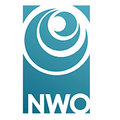
Another 78 promising young scientists receive Veni funding of up to 280,000 euros from NWO. This concerns sixty researchers from the Social Sciences and Humanities (SGW) domain and eighteen from the Applied and Technical Sciences (TTW) domain, who can further develop their own research ideas over the next three years. The Venis for the ENW and ZonMW domains were announced in December 2021.
08 April 2022
TU Delft and TNO prepare industry for scale-up phase of clean factory
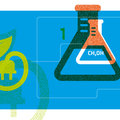
Oil and gas shortages are not only pushing up the prices of gas and petrol, but also plastics, medicines and cosmetics. To make our society less dependent on fossil fuels and combat climate change, the chemical industry needs to change radically. In recent years, TU Delft and TNO have laid the foundation for cleaner production processes in the chemical industry. The new e-Chem partnership is now taking this a step further by actually constructing a clean factory of the future.
30 March 2022
Rocket launch 1st April: sending graphene into space for the first time

Friday 1st April is a big day for the study of 2D materials (and no joke): a SpaceX rocket launch will take place that includes a research satellite which contains the first graphene conductors ever to enter space, made in Delft. In two months’ time, we will know how graphene behaves in space. What made it possible: the discovery by TU Delft researchers how to protect the graphene from environmental influences.
28 March 2022
10,000th PhD student at TU Delft
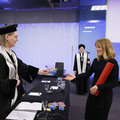
The ten thousandth PhD student at TU Delft was Annika Krieger of our TNW faculty. Her PhD took place on 22 March. A special moment for TU Delft and reason for extra flowers and presents.
21 March 2022
Delft researchers involved in ten NWA-ORC consortia
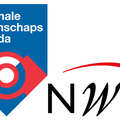
TU Delft researchers will work together in ten consortia with the entire knowledge chain and societal organisations
17 March 2022
Spotlight on aggressive cancer cells
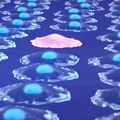
Metastases in cancer are often caused by a few abnormal cells. These behave more aggressively than the other cancer cells in a tumour. Miao-Ping Chien and Daan Brinks are working together, from two different universities, on a method to detect these cells. Their research has now been published in Nature.